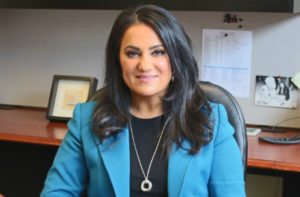 Category: Arab American Culture
Category: Arab American Culture
Planned giving is a form of strategic philanthropy that is often overlooked. Sometimes referred to as gift planning or legacy giving, it is a way to support nonprofits that enable individuals to make larger gifts than they could make from ordinary income. In short, a planned gift is any major gift, made in lifetime or at death as part of a donor’s overall financial and/or estate planning.
Our very own Lina Harajli recently spoke about her decision to leave a planned gift to CAAP and ACCESS.
What does philanthropy mean to you? What about legacy?
I used to think that giving was usually in response to something, like a natural disaster, relief effort or to help those less fortunate. ACCESS’ Center for Arab American Philanthropy (CAAP) showed me that philanthropy is about your impact being intentional and long-term.
Legacy seems like such a heavy word. Many people have the impression that you have to be wealthy in order to leave a legacy. In truth, legacy is what we leave behind and how we ensure that it lives on and continues to change the lives of others long after we are no longer here.
Why did you choose to support ACCESS’ general operations?
I come from a business background, so working in the nonprofit sector has allowed me to see how critical this type of funding is for everyday operations. Grant money is very strict, specific and program-oriented which limits our ability to pay for the expenses that aren’t budgeted for – the unexpected building costs, needed infrastructure updates, and key programs that our community needs that aren’t being funded. If an organization can’t cover its general operating costs, then it can’t focus on its critical mission.
As you think about the future of ACCESS and the people we serve, what are some of your worries and hopes? What role do you think ACCESS can play in addressing these concerns?
ACCESS’ mission is personal to me. As a mother of four incredible children, I worry every day about the world we are leaving behind for them. As an Arab American immigrant, it is important for me that an institution, like ACCESS, is around to ensure that our communities are supported for generations to come. There will always be individuals who find themselves needing a hand up, and I truly hope that ACCESS continues to be that beacon of hope for people who are new to this country.
ACCESS’ 47-year history of building communities, changing lives, and empowering individuals is a testament to the organization’s level of expertise, and this is something that needs to be sustained. The longevity of this organization can only be guaranteed by community champions who believe wholeheartedly in ACCESS’ impact, and I definitely want to be one of them. Whatever life throws our
way – whether it be policies that impact our communities or outright bigotry and discrimination – ACCESS works hard to make sure our voices are heard.
Describe the process of making a planned gift. Was it easy or difficult?
It was extremely easy. I think people get overwhelmed by thinking about estate planning. It sounds so looming, but in reality, it was extremely simple.
How are you ensuring that your children are cared for while still accomplishing your philanthropic goals?
We did two separate legacy gifts, one through a life insurance policy, which to me is the easiest way to do it, and the other through our estate plan that will go toward a scholarship fund administered by CAAP for students attending our alma mater, University of Michigan – Dearborn. Our parents provided us with stability while working hard and we want our children to have that same level of comfort, while still understanding that they are ultimately responsible for securing their own futures. Leaving a gift through a life insurance policy allows us to have an impact on our own family – which of course is extremely important and our biggest priority – but it also allows us to impact lives of individuals who don’t have a family support network and deserve access to these opportunities. I want to make sure they’re also given the hand up that they deserve. You can definitely do both.
What would you say to someone who is on the fence about making a legacy gift?
Reach out to ACCESS. They really help you understand the intricacies of making a gift in such a simple way, making it manageable. Making a legacy gift allows you to change the lives the lives of others. In my opinion, there is nothing more powerful.
CAAP is a national institution of ACCESS. For more information about making a planned gift to CAAP or ACCESS, please contact us.